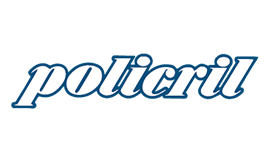About
Acrylic is a clear plastic that resembles glass, but has properties that make it superior to glass in many ways. Uniting incredible strength with aesthetic beauty, acrylic is the material of choice for thousands of products in many industries.
Acrylic is a polymer created when giant carbon molecules combine chemically. Finished acrylic sheet exhibits glass-like qualities – clarity, brilliance, transparency, translucence – but at half the weight and up to 10 times the impact resistance. It can be tinted or colored, mirrored or made opaque. A number of coatings can be applied to a sheet or finished part for performance enhancing characteristics such as scratch resistance, anti-fogging, glare reduction and solar reflective.
Acrylic is used to make various products, such as shower doors, bath enclosures, windows and skylights. It is chosen over glass for many reasons. It is many times stronger than glass, making it much more impact resistant and therefore safer. Falling against an acrylic shower door will not likely break it. Baseballs that crash through glass windows will, in most cases, bounce off acrylic windows. Acrylic also insulates better than glass, potentially saving on heating bills.
Another great advantage of acrylic is that it is only half as heavy as glass. This makes working with acrylic much easier. It can also be sawed, whereas glass must be scored. Adding to this favorable array of properties, a transparency rate of 93% makes acrylic the clearest material known. Very thick glass will have a green tint, while acrylic remains clear.




Characteristics
Transparency
Acrylic plastic is extremely transparent and transmits 92 percent of white light. This is equal to the transparency of the finest optical glass.
Impact Resistance
Acrylic sheets (Plexiglas) have six to 17 times the impact resistance of ordinary glass, depending on the specific preparation. Plexiglas also breaks into relatively dull pieces compared to glass.
Chemical Resistance
Acrylic plastic is highly resistant to inorganic acids and bases but can be dissolved by organic substances, especially petroleum products.
Combustibility
Acrylic plastic is combustible and will self-ignite at approximately 860 degrees Fahrenheit. It will burn with an open flame at about 560 degrees Fahrenheit. It is a non-conductor of heat and electric current. It can also be conveniently and easily machinable by sawing, filing, drilling, shearing, engraving. Sheets and cut-outs can easily be bonded together. Silk screen painting on the surface is simple.
Major Applications
Windows for Swimming Pools / Diving Pools
Commonly used as an aid to swimming and diving instruction enabling coach to observe swimmers and divers in action. Underwater windows are now predominantly used for stylish private pool design.
Public Aquarium Windows
Acrylic is the ideal material for Aquarium Construction. Acrylic has been used for many years in building fish tanks, enabling Hydro sight to acquire good knowledge and experience in this sector. We offer Cylinder Aquariums, shaped walls and Acrylic Tunnels.
Acrylic Ship Windows
Our Ship windows can be used near the water line or even submerged. They are used for observing marine life but also for monitoring the sea floor.
Submarine Windows
Hydro sight offers both custom cast Submarine Windows certified by a classification society of your choice and plain windows cut to size certified by German Lloyd.
Acrylic Architectural Glazing
Float glass – even tempered glass – is not meant to bear weight loads. Acrylic panels on the other hand can be used as structural elements in building architecture. Once installed acrylic has proven to retain its stability over several decennia.
Exhibition and Display Solutions
Thin acrylic sheets with a thickness of 10mm and lower our commonly used for framing large works of art. For those that are to be shipped in their frames it is prudent to use acrylic glazing with UV filtration. Not only is acrylic lighter and therefore much easier to move around, it also protects the art from becoming damaged if the glazing breaks in transit. Large cell cast sheet of more than 2m x 3m used can now be cast to order just for your application. Hydro sight also offers cutting, coating and thermoforming.
Flood Windows
Some buildings are situated near rivers, lakes or oceans where the water level can change unpredictably. These buildings have to withstand the worst case floods even so that might only happen once in a hundred years. We speak of a 100-year flood scenario. Windows below the waterline of a 100 year flood have to keep the water outside the building. Both wall and window have to be specifically engineered for this. They are part of what we call a Flood Defense System.
Acrylic Transparent Barriers
Acrylic transparent barriers are also used as barriers to protect visitors and spectators from animals in zoos. Curators of Zoos and wildlife parks perticularly value Hydro sight Transparent Barriers because of their enormous break resistance, while Hydro sight Transparent Barriers maintain a perfectly clear view.
Rear Projection Screens
Semi-transparent displays that are illuminated by a projector from the backside are often made from acrylic. This is especially the case for large and very large displays. Even spherical displays are possible.
- Advertising & signage
- Skylights, roof lights & domes
- Illuminated features & dance floors
- Interior displays
- Point of Sale Displays
- Safety Glazing
- Automotive accessories
- Architectural displays
- Canopies, arches & barrel vaults
- Shower screens & bath enclosures
- Furniture & accessories
- Sculptural & themed structures
- Gifts & stationery
- Desktops, wall hangings & mementoes
- Aquarium equipment
- Picture frames
- Kitchen cabins
- Shop fittings
We’ll update you with the PDF